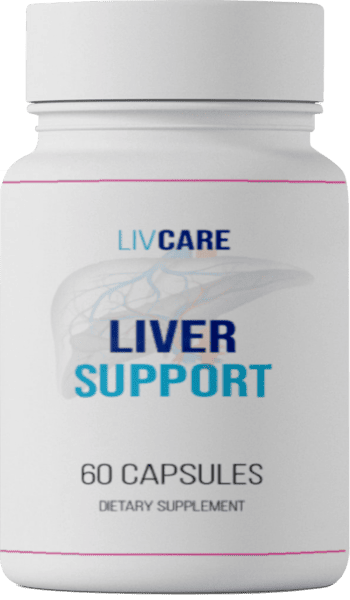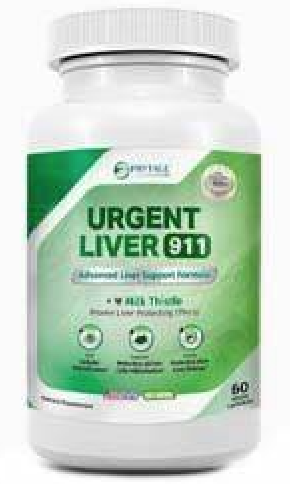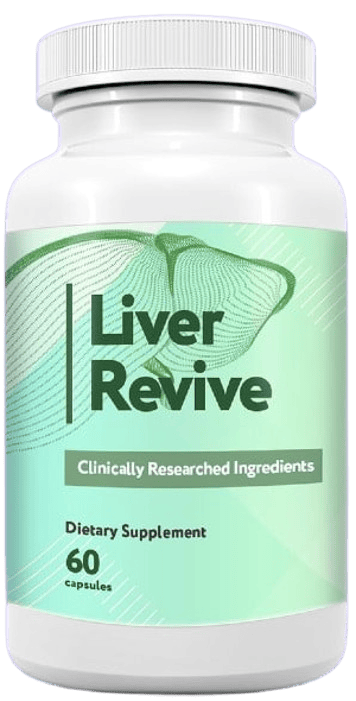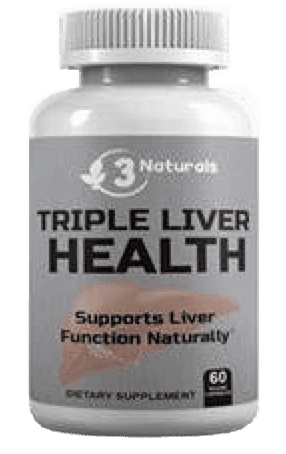If you’ve been dealing with an underactive thyroid, commonly known as hypothyroidism, you may be surprised to learn that it can also increase your risk of developing a different health condition – fatty liver disease.
This connection between thyroid function and liver health is not widely known, but understanding it can be crucial for your overall well-being.
The key question now is “Can Low Thyroid Function Increase Fatty Liver Disease risk?”
Key Takeaways:
What is Fatty Liver Disease?
Fatty liver disease, also called hepatic steatosis, is a condition where fat accumulates in the liver. This can happen for various reasons, but one of the lesser-known contributors is an underactive thyroid.
Fatty liver disease can take two forms: non-alcoholic fatty liver disease (NAFLD) and non-alcoholic steatohepatitis (NASH).
NAFLD is the more common and less severe form, while NASH involves inflammation and can potentially lead to more serious liver damage, such as cirrhosis or liver cancer.
Also Read: 7 Fatty Liver Disease Symptoms You Can’t Afford to Miss
Top 7 Liver Protection and Repair Supplements of 2025
🥇 Best Overall: GlycoFortin – The most complete and potent formula for comprehensive liver support and detoxification.
🥈 Runner-Up: LivCare – Excellent for liver cell protection and regeneration.
🥉 Best for Detox: Urgent Liver 911 – Outstanding for targeted cleansing and toxin removal.
💥 Best Value: Ultra Liver – An affordable yet powerful all-rounder.
In a rush? Here’s our top choice:
🥇 Ultra Liver
Our number one choice for its superior blend of milk thistle, NAC, alpha-lipoic acid, and selenium in clinical doses designed for complete liver support.
Check Best Price on Official Website
1. GlycoFortin: Best Overall Supplement ⭐⭐⭐⭐⭐

Best Overall: ⭐⭐⭐⭐⭐ Excellent (9.92/10)
Ultra Liver earns the top spot as the best overall liver health supplement of 2025. It’s a powerful liver repair and protection supplement containing over 23 high-quality sourced ingredients that helps support a healthy liver.
Check Price on Official Website
GlycoFortin delivers a powerful, multi-mechanism approach that supports detoxification pathways, protects liver cells from damage, and promotes regeneration with clinically-studied ingredients at optimal dosages.
Key Features:
- Complete Liver Complex: Features 500mg of Milk Thistle (80% silymarin), 600mg of NAC, and 200mg of Alpha-Lipoic Acid—the gold standard trio for liver support.
- Potent Antioxidant Protection: Includes Selenium, Zinc, and Turmeric Curcumin to protect liver cells from oxidative damage and reduce inflammation.
- Detoxification Support: Contains Beet Root, Dandelion Root, and Artichoke Extract to support bile production and natural cleansing processes.
- Made in the USA: Produced in a cGMP-certified facility, third-party tested for purity and potency. Non-GMO and vegan.
Pros:
✅ Addresses detoxification, protection, and regeneration simultaneously
✅ Users report increased energy and reduced brain fog within weeks
✅ Supports healthy digestion and reduces bloating
✅ Transparent label with fully disclosed clinical dosages
Cons:
❌ Premium price point
❌ Contains multiple active ingredients; best to start with half dose
Verdict: GlycoFortin is the undisputed champion for anyone seeking a complete, clinical-strength solution for comprehensive liver support and function restoration. Check Price on Official Website.
2. LivCare: Best for Liver Cell Protection

Rating: (9.5/10) ⭐️⭐️⭐️⭐️☆ – Very Good
LivCare earns the second spot as the top liver health supplement of 2025. It’s a powerful liver repair and protection supplement.
Check Price on Official Website
LivCare is a powerful runner-up, specifically formulated for protecting liver cells from damage and promoting regeneration. Its targeted formula focuses on hepatoprotective ingredients with strong scientific backing.
Key Features:
- Cell Protection Complex: Features 300mg of Silymarin (Milk Thistle), 200mg of NAC, and 100mg of Alpha-Lipoic Acid for robust liver cell defense.
- Regeneration Support: Includes Schisandra Berry and Licorice Root, traditionally used to support liver regeneration and repair.
- Anti-Inflammatory Action: Contains Turmeric Curcumin and Ginger Root to reduce liver inflammation.
- Enhanced Bioavailability: Uses black pepper extract (Piperine) to significantly enhance the absorption of active compounds.
Pros:
✅ Highly effective for protecting liver cells from damage
✅ Supports natural regeneration processes
✅ Reduces inflammation and oxidative stress
✅ Clean formula without unnecessary fillers
Cons:
❌ Less focused on detoxification pathways than top pick
❌ Must be taken with food for best tolerance
Verdict: LivCare is the ideal choice for those primarily concerned with protecting their liver from damage caused by medications, environmental toxins, or lifestyle factors. Check Price on Official Website.
3. Urgent Liver 911: Best for Detoxification

Rating: (9.3/10) ⭐️⭐️⭐️⭐️☆ – Very Good
Urgent Liver 911 is a powerful liver protection and treatment supplement containing over 23 high-quality sourced ingredients that helps support a healthy liver.
Check Price on Official Website
Urgent Liver 911 specializes in supporting the liver’s natural detoxification processes. Its formula is designed to enhance the body’s ability to process and eliminate toxins efficiently.
Key Features:
- Detox Enhancement Complex: Features Milk Thistle, Dandelion Root, and Yellow Dock Root to support phase I and II liver detoxification pathways.
- Bile Production Support: Includes Artichoke Leaf Extract and Beet Root to promote healthy bile flow and digestion.
- Toxin Elimination: Contains Burdock Root and Chicory Root to support the elimination of processed toxins.
- Natural Cleansing Herbs: Utilizes traditional liver-cleansing herbs in effective doses.
Pros:
✅ Exceptionally effective for supporting detoxification processes
✅ Users report improved digestion and reduced bloating
✅ Helps eliminate waste products more efficiently
✅ Particularly beneficial after periods of poor diet or excess
Cons:
❌ Very focused on detox rather than comprehensive liver support
❌ May cause mild detox symptoms initially as toxins are released
Verdict: Urgent Liver 911 is the ultimate supplement for anyone looking to support their liver’s detoxification capabilities, especially after periods of dietary indulgence or toxin exposure.
4. Ultra Liver: Best for Blood Sugar & Liver Health

Rating: (8.90/10) ⭐️⭐️⭐️⭐️☆ – Very Good
Ultra Liver is a specialized formula designed to support the proper functioning of your pancreas and liver so that you can enjoy life to the fullest again.
Check Price on Official Website
Ultra Liver takes a unique approach by addressing the critical connection between blood sugar metabolism and liver health. Its formula supports both liver function and healthy glucose levels.
Key Features:
- Dual-Action Formula: Features Berberine HCL, Milk Thistle, and Cinnamon Bark Extract to support both liver health and healthy blood sugar levels.
- Insulin Sensitivity Support: Includes Alpha-Lipoic Acid and Chromium to improve insulin sensitivity and glucose metabolism.
- Liver Protection: Contains NAC and Turmeric to protect liver cells from damage related to metabolic stress.
- Metabolic Support: Provides bitter melon and banaba leaf for additional metabolic benefits.
Pros:
✅ Addresses the important liver-blood sugar connection
✅ Supports metabolic health alongside liver function
✅ Users report improved energy levels and reduced cravings
✅ Ideal for those with metabolic concerns
Cons:
❌ Niche product focused on metabolic support
❌ May interact with diabetes medications
Verdict: Ultra Liver is perfect for individuals concerned about both liver health and blood sugar balance, particularly those with metabolic syndrome concerns. Check Price on Official Website.
5. Liver Flow Plus: Best Comprehensive Blend

Rating: (8.70/10) ⭐️⭐️⭐️☆☆ – Good
Liver flow plus earns the 5th spot as top liver health supplement of 2025. It’s a protection supplement containing over 7 high-quality sourced ingredients that helps support a healthy liver
Check Price on Official Website
Liver Flow Plus offers a well-rounded approach to liver support, covering detoxification, protection, and regeneration in a balanced formula. It provides solid support across all aspects of liver health.
Key Features:
- Three-Pronged Approach: Combines Milk Thistle for protection, Artichoke for bile support, and Turmeric for inflammation reduction.
- Digestive Support: Includes Ginger Root and Peppermint to support digestion and reduce bloating.
- Antioxidant Protection: Contains Selenium and Vitamin E for additional antioxidant support.
- Balanced Formula: Provides moderate doses of multiple liver-supportive ingredients.
Pros:
✅ Good overall coverage of liver health aspects
✅ Supports digestion and reduces bloating effectively
✅ Well-tolerated with minimal side effects
✅ Positive reviews for general liver maintenance
Cons:
❌ Lower potency than top-tier options
❌ Lacks some of the more advanced ingredients found in premium formulas
Verdict: Liver Flow Plus is a solid choice for those seeking balanced liver support without extremely high potencies of individual ingredients. Check Price on Official Website.
6. Liver Revive: Best for Energy & Vitality

Rating: (8.03/10) ⭐️⭐️⭐️☆☆ – Good
It’s a liver protection supplement containing over 6 high-quality sourced ingredients that helps support a healthy liver.
Check Price on Official Website
Liver Revive focuses on the connection between liver function and overall energy levels. Its formula is designed to support liver health while specifically addressing the fatigue associated with liver stress.
Key Features:
- Energy Enhancement Complex: Features Milk Thistle, CoQ10, and B-vitamins to support energy production and reduce fatigue.
- Mitochondrial Support: Contains Alpha-Lipoic Acid and Acetyl-L-Carnitine for cellular energy production.
- Stress Adaptation: Includes Ashwagandha and Rhodiola to help the body adapt to stress that affects liver function.
- Vitality Support: Provides schisandra berry and eleuthero for overall vitality.
Pros:
✅ Highly effective for reducing liver-related fatigue
✅ Supports cellular energy production
✅ Helps improve overall vitality and well-being
✅ Users report improved mental clarity and physical energy
Cons:
❌ Less focused on detoxification than other formulas
❌ Contains adaptogens that may not be suitable for everyone
Verdict: Liver Revive is ideal for anyone experiencing significant fatigue and low energy levels related to liver function issues. Check Price on Official Website.
7. Tripple Liver Health: Best Value

Rating: (8.00/10) ⭐️⭐️☆☆☆ – Fair
Formula that supports liver functions naturally.
Check Price on Official Website
Tripple Liver Health: offers essential liver support at an accessible price point. It provides core liver-supportive ingredients without the premium cost, making it an excellent entry point for liver health supplementation.
Key Features:
- Core Liver Support: Contains effective doses of Milk Thistle, Turmeric, and Artichoke Extract for foundational liver health.
- Digestive Aid: Includes Dandelion Root and Ginger to support digestion and bile flow.
- Antioxidant Protection: Provides basic antioxidant support with selenium and zinc.
- Budget-Friendly: Priced significantly lower than top-tier options while maintaining quality ingredients.
Pros:
✅ Excellent cost-per-serving value
✅ Effective for general liver maintenance and support
✅ Provides solid digestive benefits
✅ Positive reviews for reducing bloating and improving digestion
Cons:
❌ Lower potency than top-tier options like Ultra Liver
❌ Lacks some of the more advanced ingredients found in premium formulas
Verdict: Tripple Liver Health is the perfect choice for anyone seeking reliable daily liver support without a large financial investment or those new to liver health supplements. Check Price on Official Website.
How is Thyroid Function Linked to Fatty Liver Disease?
Thyroid hormones play a crucial role in regulating your body’s metabolism and fat storage.
When thyroid function is impaired, as in the case of hypothyroidism, this can disrupt the normal balance of fat metabolism and lead to the accumulation of fat in the liver.
Specifically, hypothyroidism can contribute to fatty liver disease in the following ways:
1. Decreased Metabolism
Thyroid hormones are responsible for regulating your body’s metabolic rate. When thyroid function is low, your metabolism slows down, making it harder for your body to break down and process fats effectively. This can lead to the buildup of fat in the liver.
2. Increased Fat Storage
Thyroid hormones also play a role in the way your body stores and distributes fat. In hypothyroidism, the body may be more prone to storing excess fat, including in the liver.
3. Insulin Resistance
Hypothyroidism can contribute to insulin resistance, a condition where your cells become less responsive to the hormone insulin. This can lead to the development of fatty liver disease, as insulin resistance is a major risk factor for NAFLD.
Symptoms and Diagnosis
The symptoms of fatty liver disease can be quite subtle, and in many cases, the condition may not cause any noticeable symptoms at all, especially in its early stages. Some potential symptoms include:
- Fatigue
- Abdominal discomfort or pain
- Nausea
- Swelling in the legs or abdomen
To diagnose fatty liver disease, your healthcare provider may order one or more of the following tests:
- Blood tests to check for elevated liver enzymes
- Imaging tests like ultrasound, CT scan, or MRI to detect fat accumulation in the liver
- Liver biopsy, which involves taking a small sample of liver tissue for analysis
It’s important to note that the presence of hypothyroidism does not automatically mean you will develop fatty liver disease.
However, if you have an underactive thyroid, it’s a good idea to discuss your risk with your healthcare provider and consider regular monitoring of your liver health.
WATCH THIS VIDEO: Can Low Thyroid Function Increase Fatty Liver Disease risk?

Managing Thyroid Function and Fatty Liver Disease
If you have been diagnosed with both hypothyroidism and fatty liver disease, there are steps you can take to address both conditions and potentially reduce your health risks.
Treat Hypothyroidism
The first step is to ensure that your hypothyroidism is properly managed through the use of thyroid medication, such as levothyroxine.
This can help restore your thyroid function to normal levels and may, in turn, help prevent or slow the progression of fatty liver disease.
Maintain a Healthy Lifestyle
In addition to addressing your thyroid condition, adopting a healthy lifestyle can also be beneficial for managing fatty liver disease. This includes:
Regular Monitoring
Because of the connection between thyroid function and liver health, it’s important to have regular check-ups with your healthcare provider.
This may involve periodic blood tests to monitor your thyroid and liver function, as well as periodic imaging tests to assess the status of your liver.
Frequently Asked Questions (FAQs)
1. Can hypothyroidism cause fatty liver disease?
Yes, hypothyroidism, or an underactive thyroid, can contribute to the development of fatty liver disease. The link is related to the role thyroid hormones play in regulating metabolism and fat storage.
2. How does thyroid dysfunction affect the liver?
Thyroid hormones are essential for maintaining proper liver function. When thyroid function is impaired, as in the case of hypothyroidism, it can disrupt the normal balance of fat metabolism, leading to the accumulation of fat in the liver.
3. Is there a connection between Hashimoto’s thyroiditis and fatty liver disease?
Yes, there is a potential connection. Hashimoto’s thyroiditis is an autoimmune disorder that can cause hypothyroidism.
The impaired thyroid function associated with Hashimoto’s may contribute to the development of fatty liver disease.
4. Can treating hypothyroidism improve fatty liver disease?
Yes, addressing hypothyroidism through proper treatment and medication may help reduce the risk or progression of fatty liver disease.
Restoring normal thyroid function can help regulate metabolism and fat storage, which can in turn improve liver health.
5. Should people with hypothyroidism get their liver function tested?
Yes, it is generally recommended for individuals with hypothyroidism to have their liver function tested regularly.
This is because of the potential link between thyroid dysfunction and fatty liver disease. Regular monitoring can help detect any liver-related issues early on.
6. Can weight loss help with fatty liver disease in people with hypothyroidism?
Yes, maintaining a healthy body weight through a balanced diet and regular exercise can be beneficial for individuals with both hypothyroidism and fatty liver disease.
Weight loss can help reduce the amount of fat accumulation in the liver and improve overall liver health.
7. Is there a specific diet recommended for people with hypothyroidism and fatty liver disease?
There is no one-size-fits-all diet, but a generally healthy, balanced diet that is low in added sugars, refined carbohydrates, and unhealthy fats may be beneficial for both hypothyroidism and fatty liver disease.
Focusing on nutrient-dense whole foods, lean proteins, and healthy fats can help support overall metabolic and liver health.
- Cheapest GLP-1 Without Insurance Review – 7 Affordable Options Compared - January 6, 2026
- ProstaPeak Review: Is This the Best Prostate Solution for Men Over 40? - November 23, 2025
- Orivelle Fungus Pen Review: Do Not Buy Until You’ve Read This - November 19, 2025






